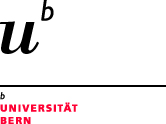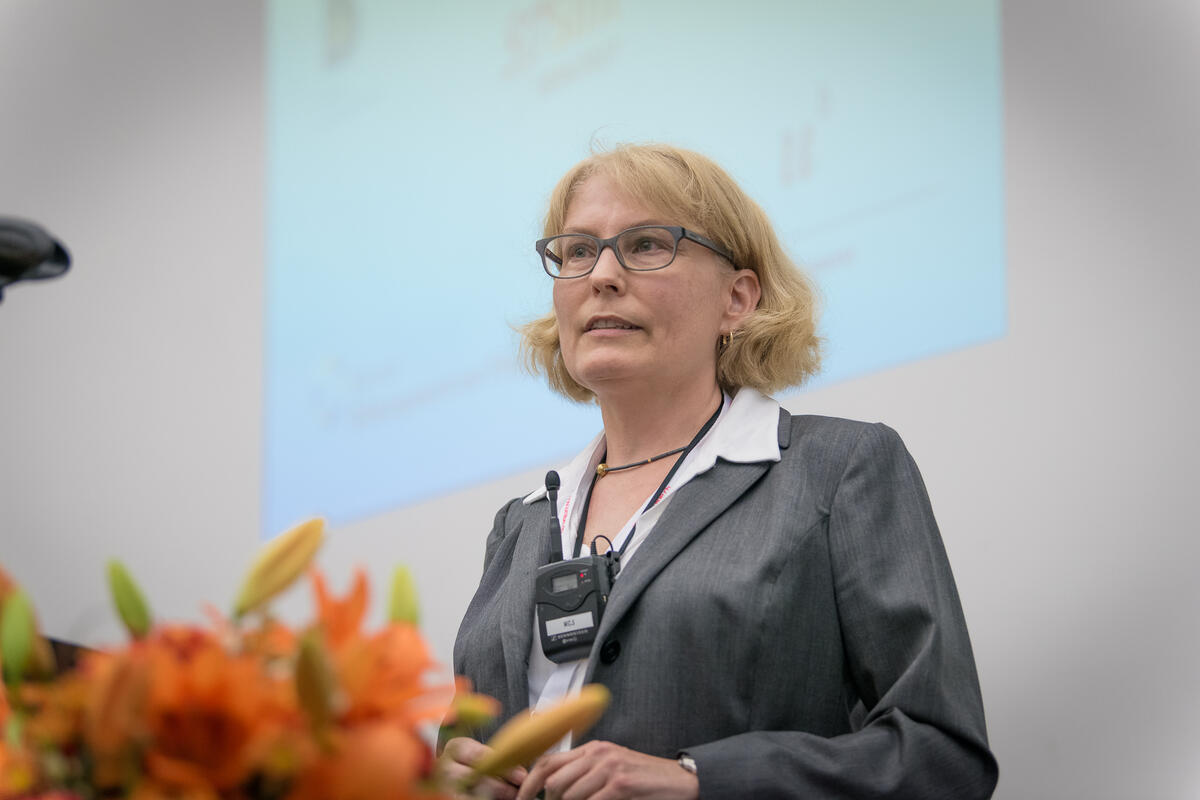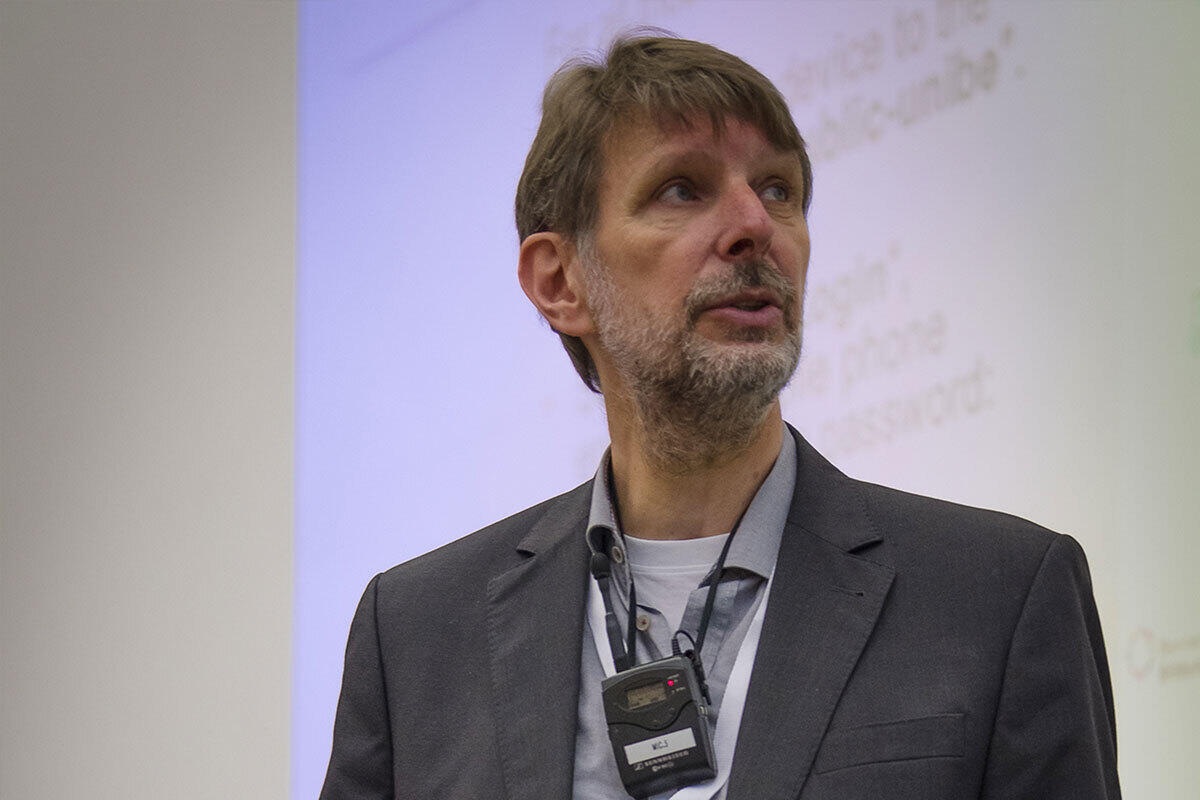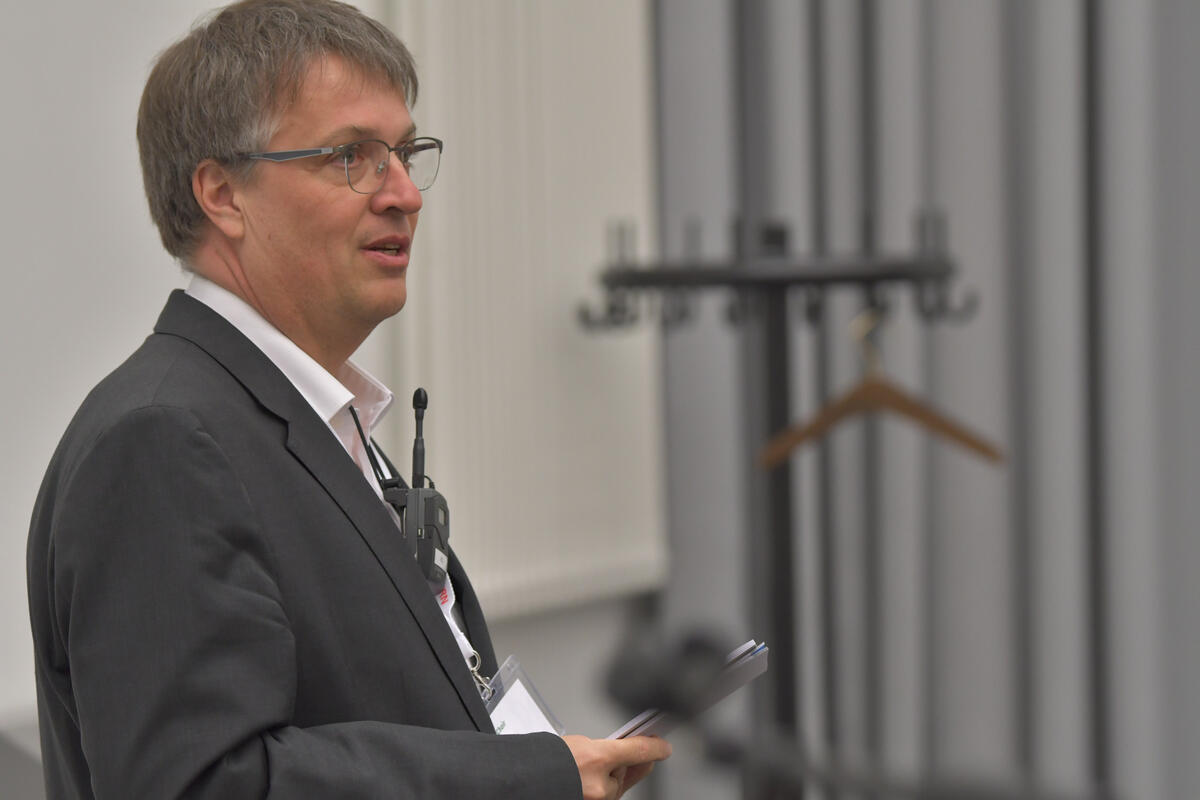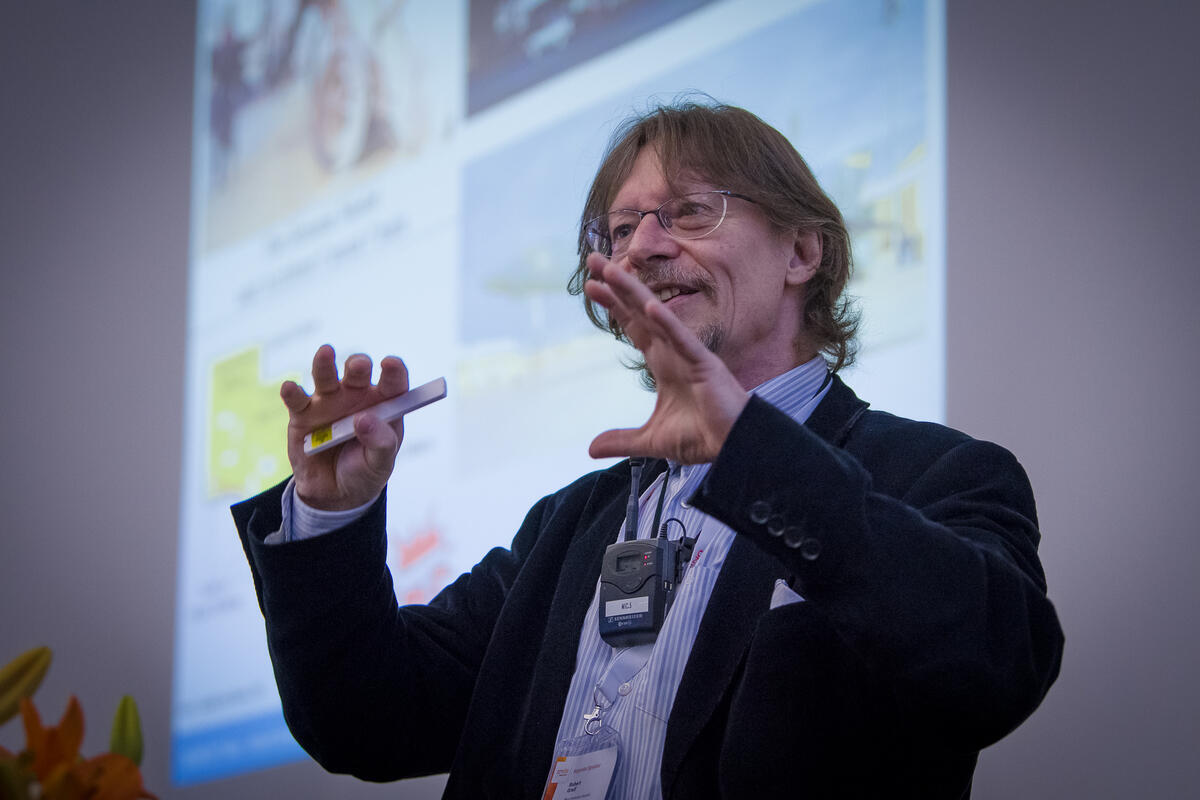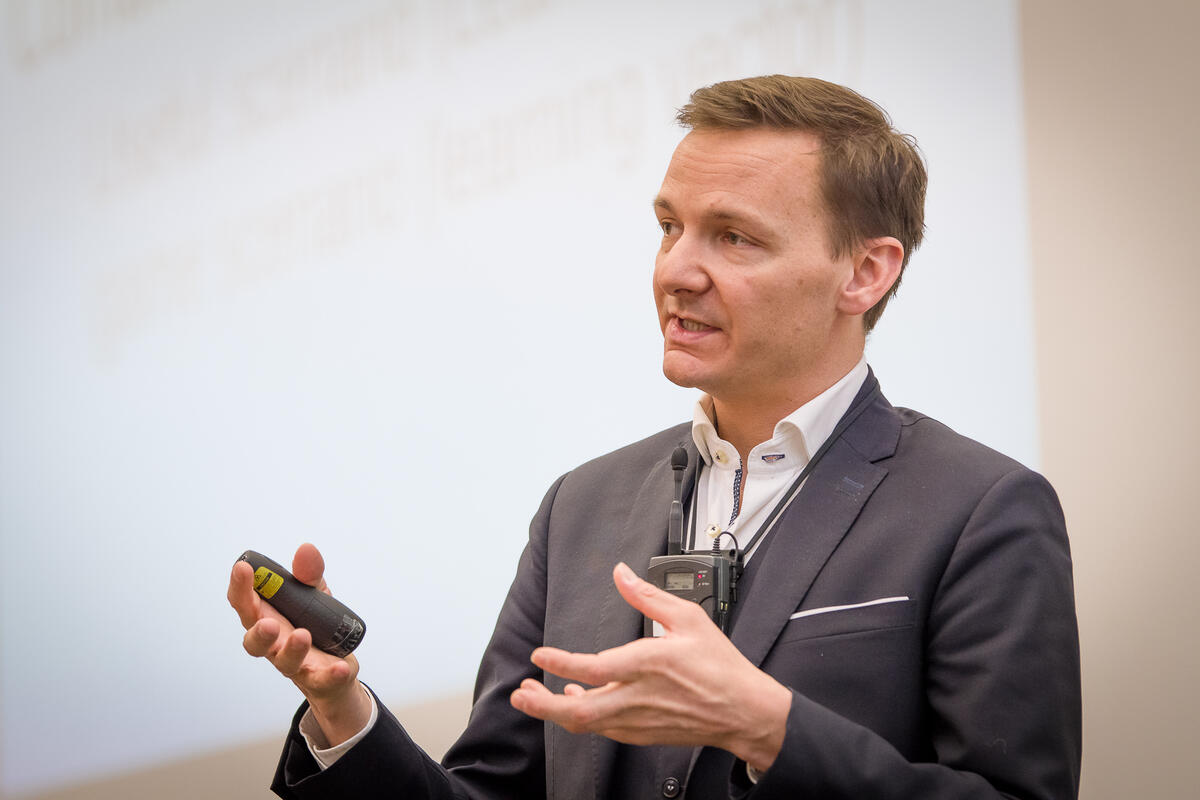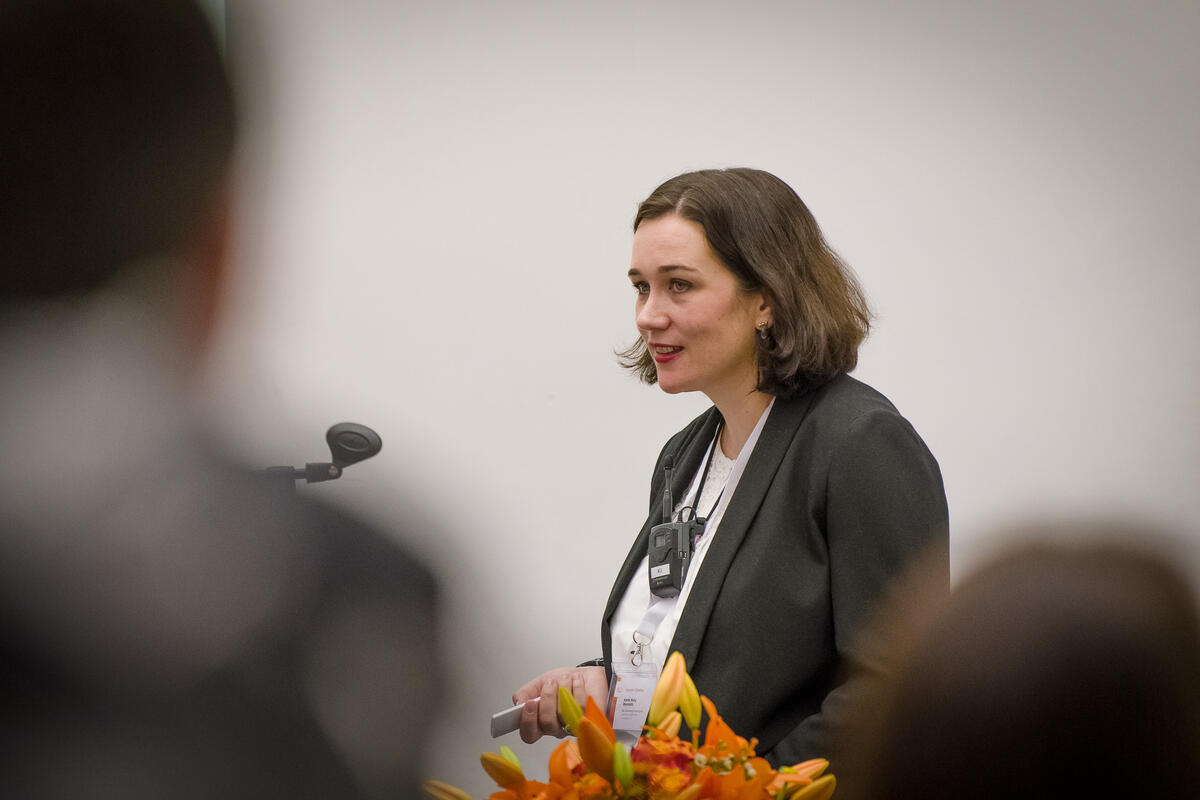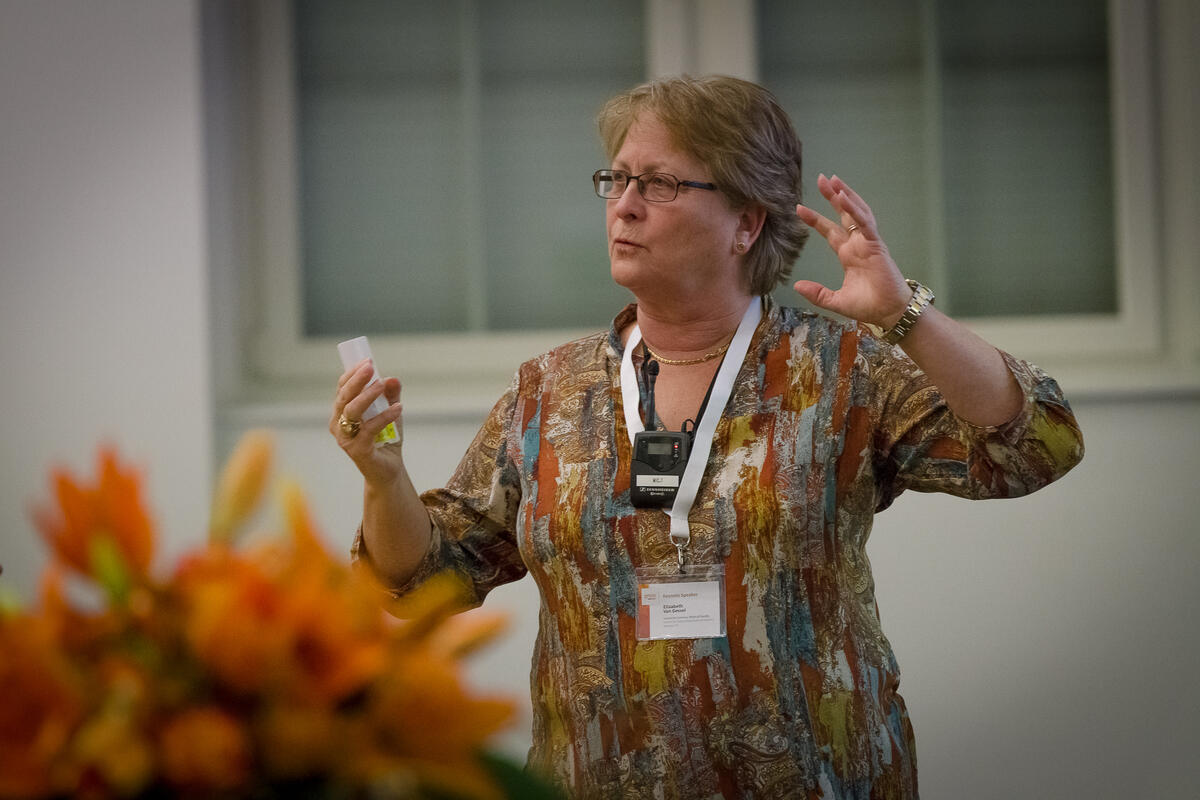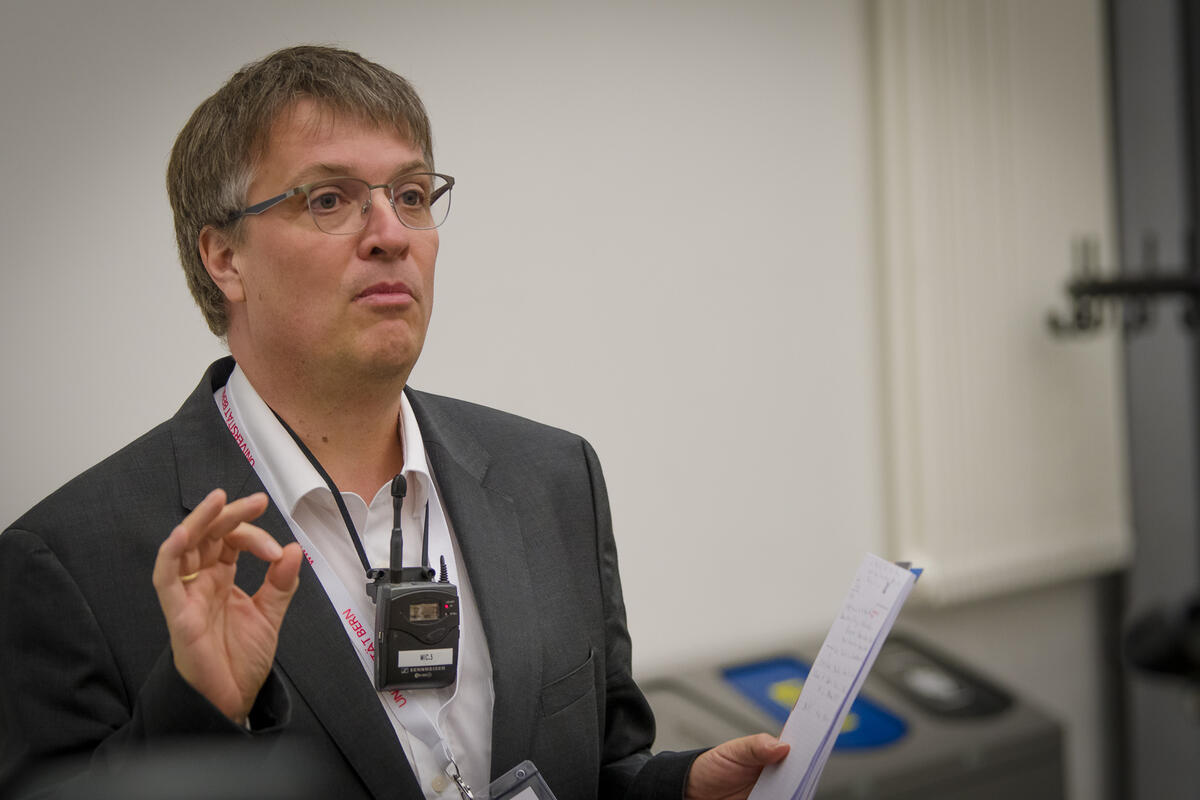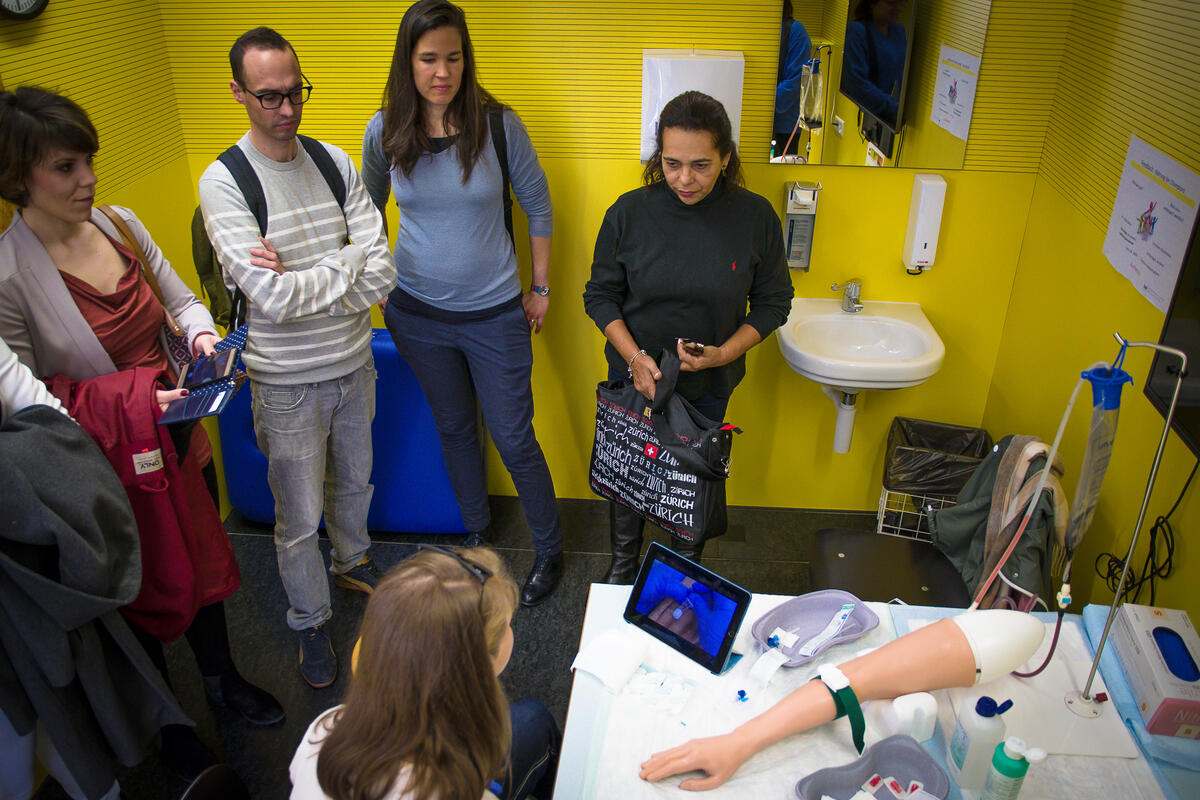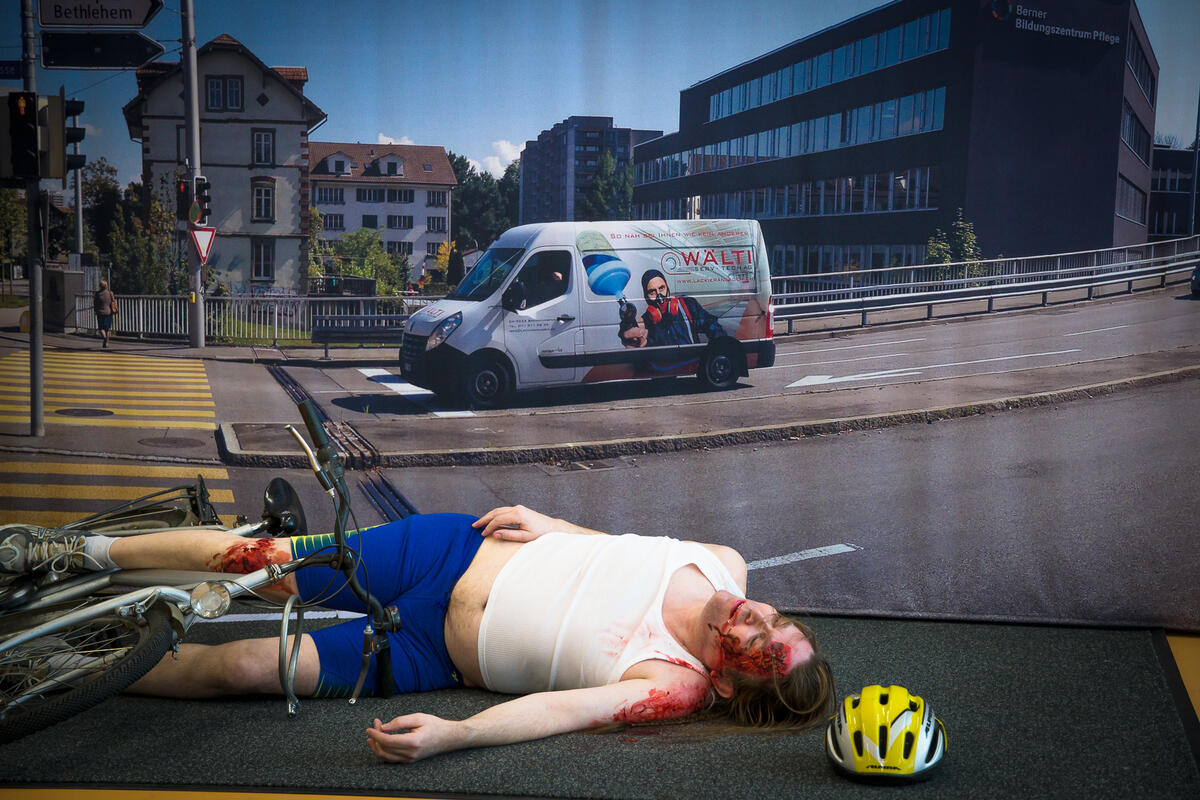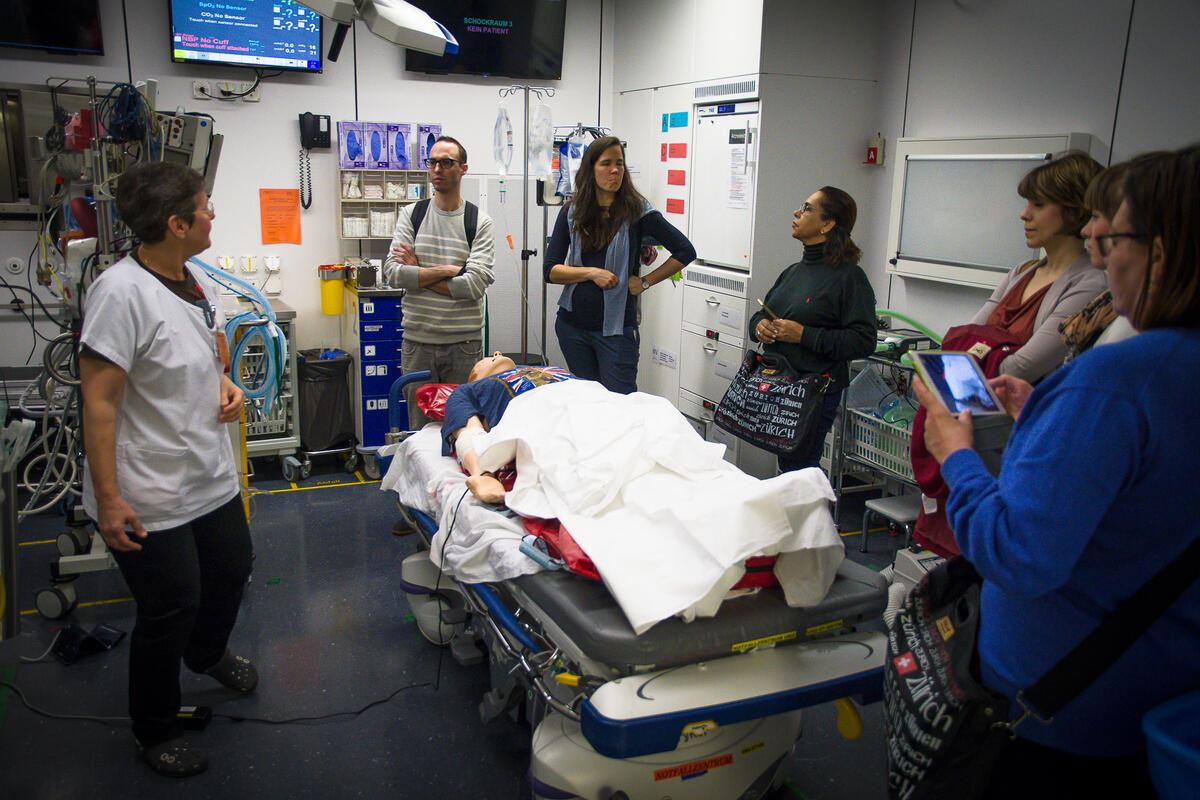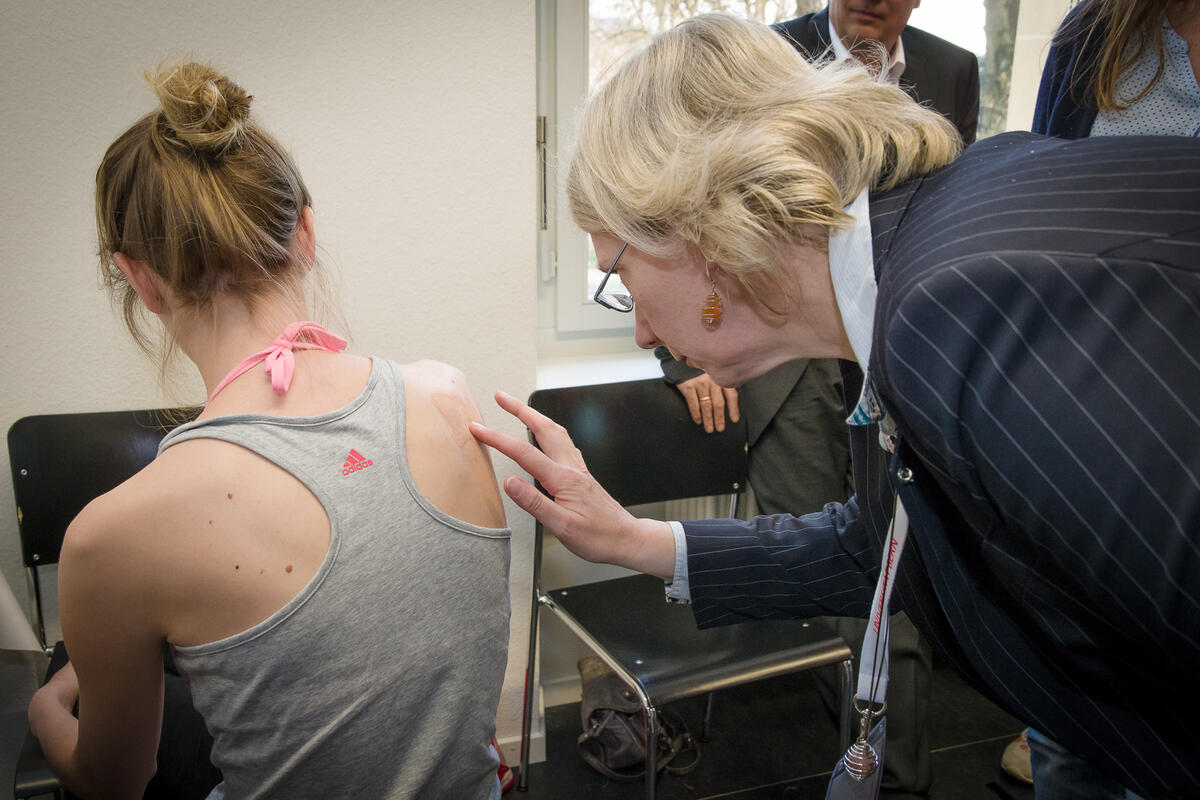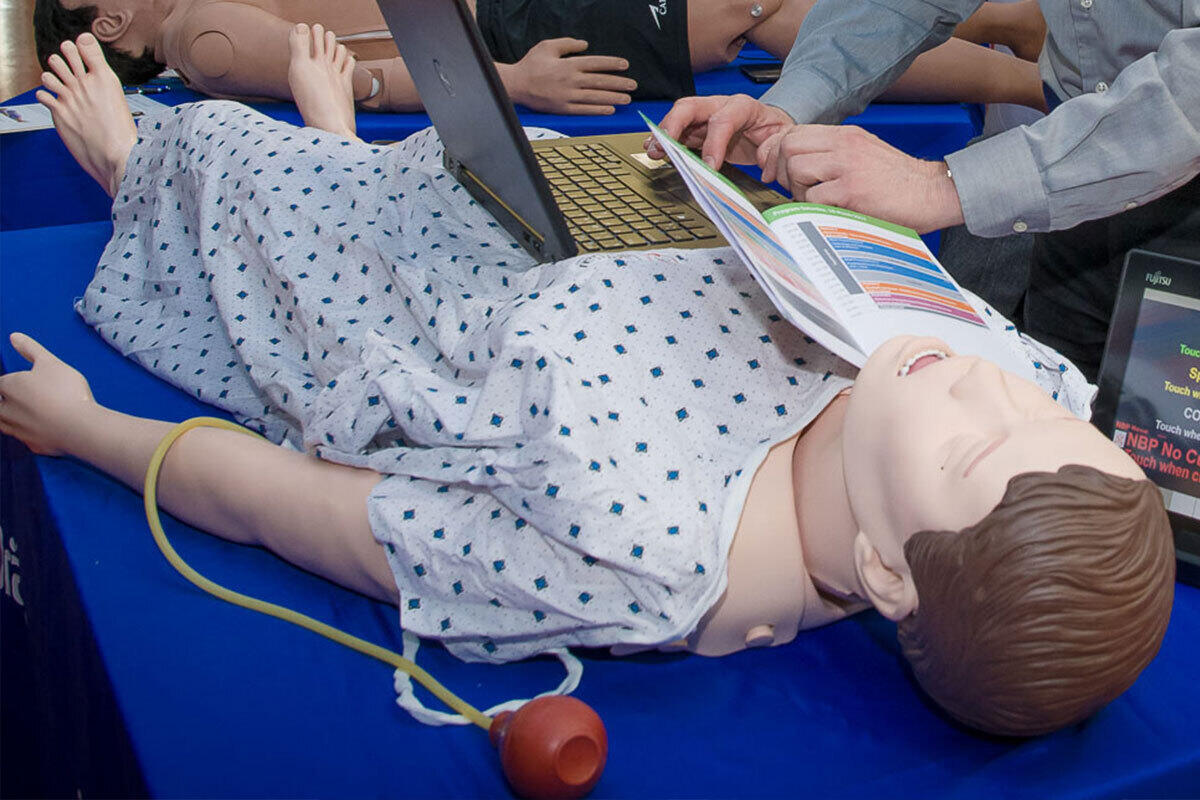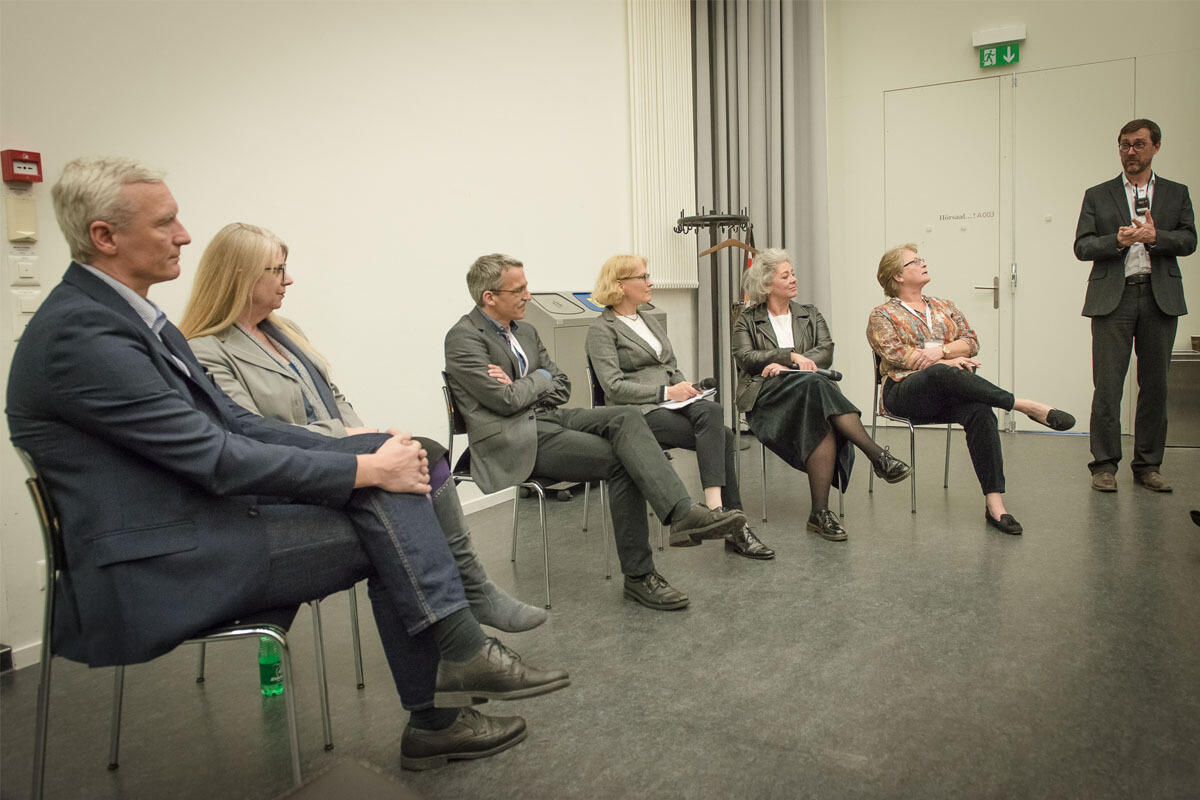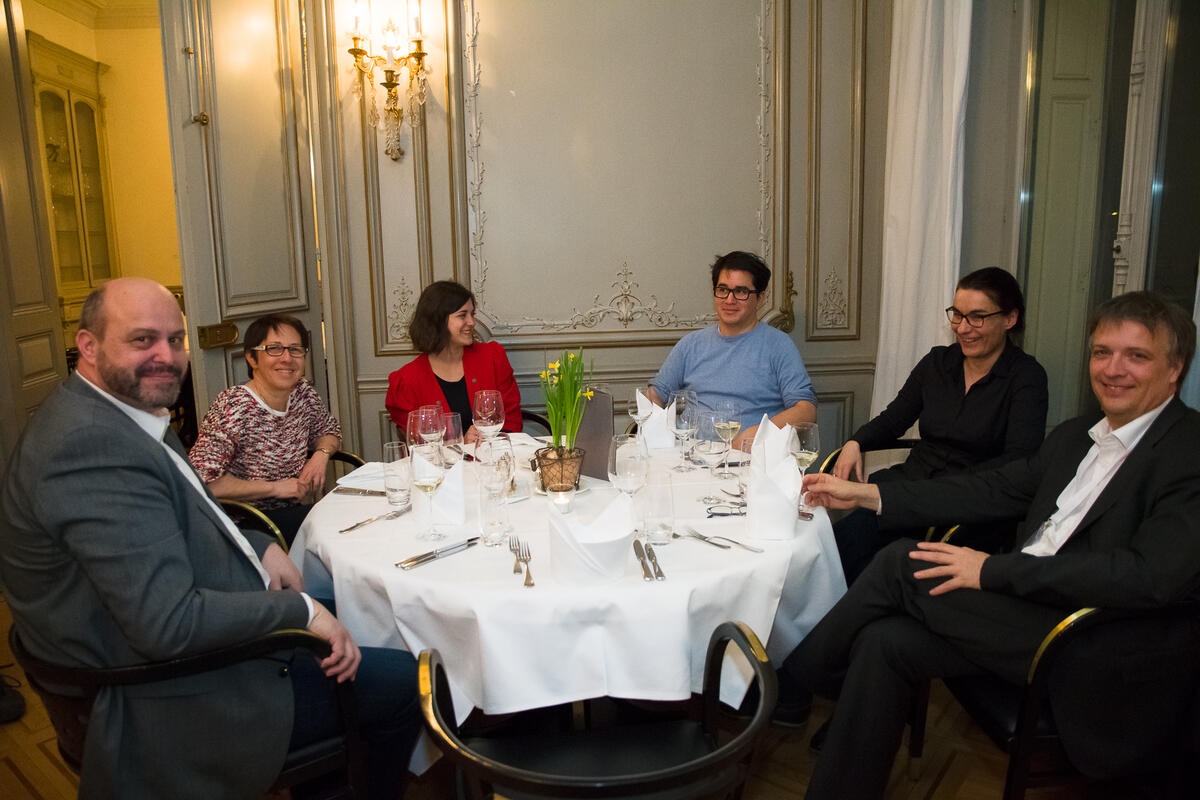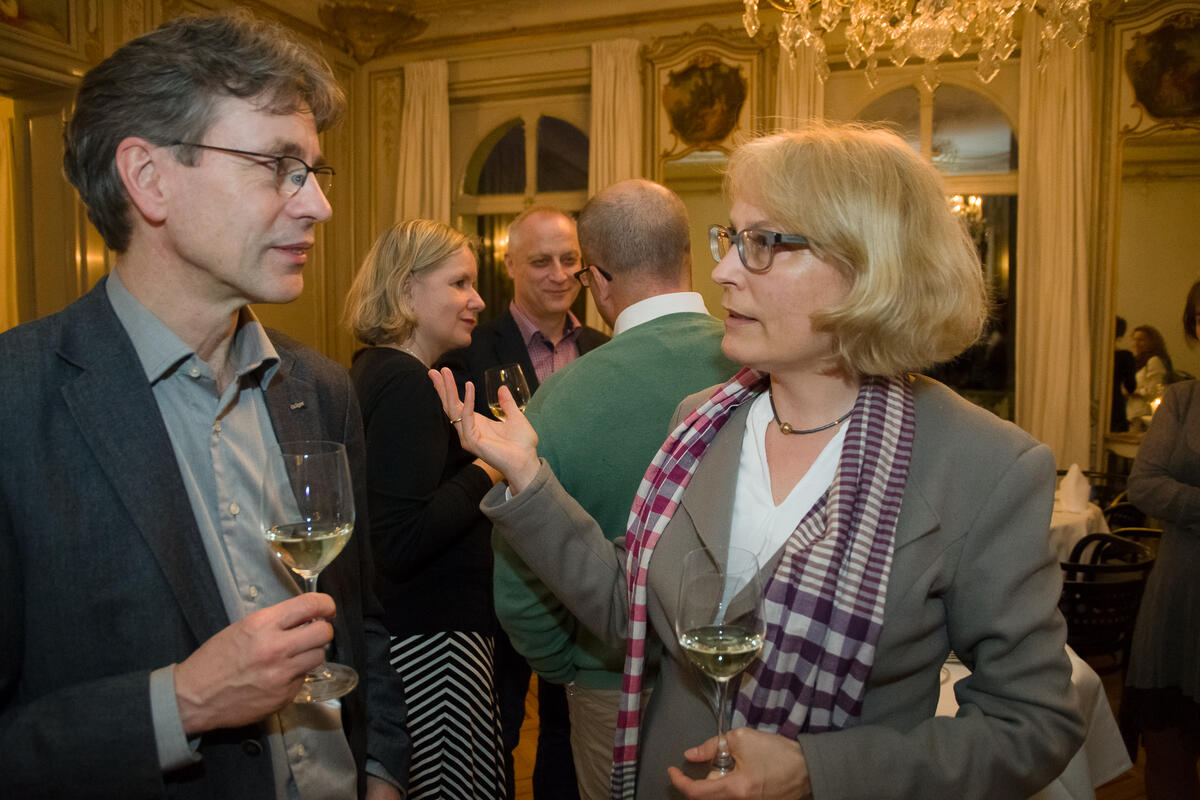The Institute for Medical Education (IML) of the Medical Faculty of Bern hosted the fifth SPSim conference in cooperation with the College of Higher Education in Nursing (BZ Pflege), the Bern University of Applied Sciences Health Section and the Haute Ecole de Santé Vaud (HESAV) Lausanne. The SPSim addresses themes surrounding the use of standardized patients (SP) and simulations (Sim) in undergraduate and postgraduate education in the health professions. In this regard, great importance is attached to interprofessional collaboration (link to Story Award Interprofessionalism from Dec), sharing experiences, as well as current research. This year, it was the turn of the IML to assume scientific and organisational responsibility. With over 120 participants from six different countries, over the three days of the conference, an interprofessional exchange of scientific information was achieved in a stimulating atmosphere.
Interprofessional exchange
As part of the preliminary programme, a tour was given of the simulation and skills centres at the Bern location. At four preconference workshops, the focus was on the themes of small-group teaching with standardized patients (SPs), use of moulages, hybrid simulations and the realisation of a new interdisciplinary simulation centre in Bern. In the main programme, the keynote speakers were able to emphasise the themes of hybrid simulation, virtual simulations, standardized patients and interprofessional curricula, which were then consolidated in over 40 contributions by the participants in the form of short presentations, poster presentations and workshops.
Curricular innovations
The theme of this year’s conference, which took place in English, was “Curricular Integration of Simulation in Healthcare, from Concept to Reality”. International keynote speakers gave an overview of current curricular developments and research in the interprofessional environment of healthcare. Trends and cultural differences were illuminated and provided valuable insights into different areas of undergraduate and postgraduate education.
SPSim as a platform for exchange
With a main emphasis on teaching, the SPSim offers an interprofessional platform for teachers to inspire one another and exchange their views and experiences. Through the use of simulations and SPs, practical aspects of undergraduate and postgraduate education can be designed in a projectable, flexible and secure manner. Regarding this year’s SPSim, the importance of also designing practice situations during the degree course in an interprofessional manner was emphasized. Enabling high-quality learning environments and experiences is valuable in many respects. This facilitates gains not only in knowledge, but also in experiences, which our students and trainees can go on to pursue as future teachers.
At the end of the conference, the representatives of the organising institutions (Sissel Guttormsen, Theresa Scherer, Peter Marbet and Nadine Oberhauser), the Society in Europe for Simulation Attached to Medicine, the Swiss Association for Simulation in Healthcare (SESAM/SASH: Dr. Stefan Gisin) and the Director of the Centre Interprofessionel de Simulation (CIS) held a (naturally interprofessional) podium discussion on the promising future of simulation-based, interdisciplinary and interprofessional undergraduate and postgraduate education. This was moderated by Dr. med. Raphaël Bonvin (University of Lausanne) The active discussion between podium and public touched on opportunities of and barriers to interprofessional teaching with simulations and SPs. It was noted that currently, many significant projects are underway in Switzerland.
We look forward to the next joint conference in September 2019, which will be arranged by the Bern University of Applied Science Health Section!
The conference was organised by an interprofessional and inter-institutional team:
Strategic leadership:
Sissel Guttormsen (IML, Conference President 2017), Ulrich Woermann (IML, Head of OC), Kai Schnabel (IML, Head of SAB), Peter Marbet, Claudia Schlegel (BZ Pflege), Eugen Mischler, Theresa Scherer, Sybille Matt (BFH), Nadine Oberhauser (HESAV)
Organising Committee(OC):
Ulrich Woermann, Claudia Schlegel, Sybille Matt, Nadine Oberhauser, Kai Schnabel
Scientific Advisory Board (SAB):
Kai Schnabel, Carine Layat, Monika Brodmann, Stefan Gisin, Daniel Bauer, Benjamin Rapphold, Josée Des Granges Zimmermann, Dörte Watzek, Uwe Weber
